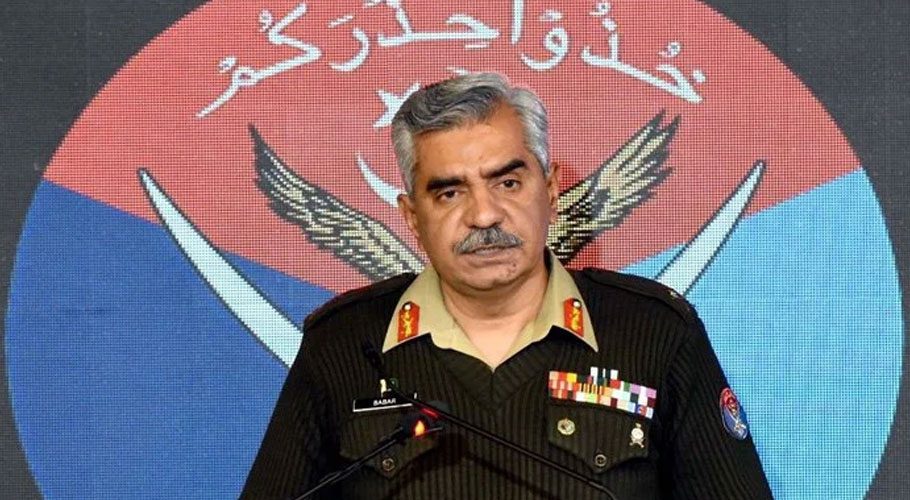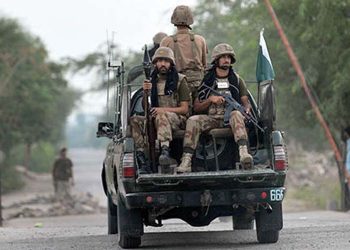ISLAMABAD: Director-General (DG) Inter-Services Public Relations (ISPR) Major General Babar Iftikhar on Sunday denied any sort of military’s involvement in political developments of the day.
The military has nothing to do with what happened today, Director-General Inter-Services Public Relations (ISPR) Major General Babar Iftikhar Sunday told Geo News after the country witnessed a political rollercoaster ride within the span of a few hours Sunday.
Replying to a question regarding the consent of the Army in the political developments of the day, the DG ISPR said, “Absolutely not, the military has nothing to do with what happened today.”
The DG ISPR’s statement came after President Dr Arif Alvi dissolved the National Assembly on Prime Minister Imran Khan’s advice under Article 58 of the Constitution.
“The president of Pakistan, Dr Arif Alvi, has approved the advice of the prime minister of Pakistan to dissolve the National Assembly under Article 58 (1) read with Article 48(1) of the Constitution of the Islamic Republic of Pakistan,” according to a statement issued by the President’s Secretariat.
Earlier today, Prime Minister Imran, in an address to the nation, said he had advised the president to “dissolve assemblies”.
According to Article 58, “The president shall dissolve the National Assembly if so advised by the prime minister; and the National Assembly shall, unless sooner dissolved, stand dissolved at the expiration of forty-eight hours after the prime minister has so advised.”
Before this, the NA deputy speaker ruled to adjourn the session held for voting on the no-confidence motion against PM Imran Khan, terming it as “unconstitutional.”
Information Minister Chaudhry, who took the floor shortly after the NA session began, said that loyalty to the state was the basic duty of every citizen under Article 5(1). He reiterated the premier’s earlier claims that a foreign conspiracy was behind the move to oust the government.
“We were told that relations with Pakistan were dependent on the success of the no-confidence motion. We were told that if the motion fails, then Pakistan’s path would be very difficult. This is an operation for a regime change by a foreign government,” he alleged.
Suri, who chaired the session, noted that the motion was presented on March 8 and should be according to the law and the Constitution. “No foreign power shall be allowed to topple an elected government through a conspiracy,” he said, adding that the points raised by the minister were “valid”.
He dismissed the motion, ruling that it was “contradictory” to the law, the Constitution and the rules. The session was later prorogued.


































